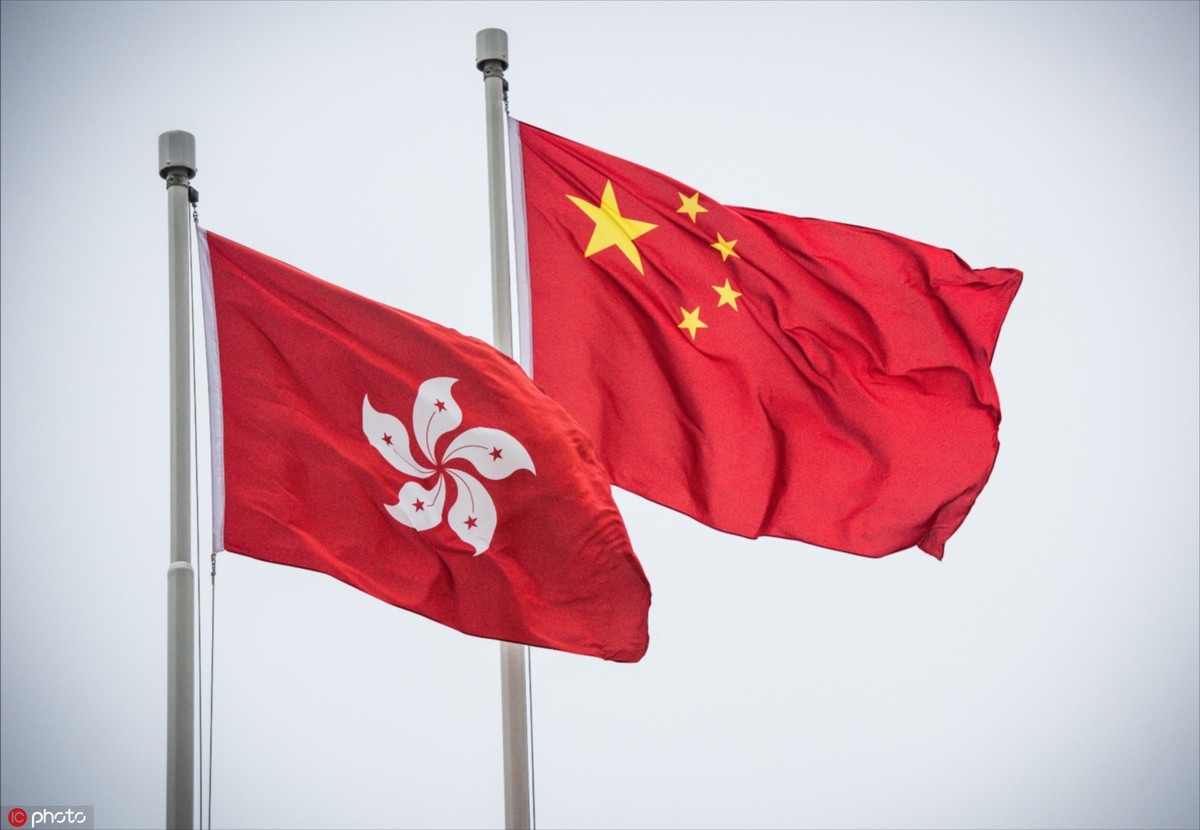Sino-UK declaration has no role in HK affairs, experts say
By ZHANG YUNBI | China Daily Global | Updated: 2019-08-27 03:48

In recent comments on the unrest in Hong Kong, some senior politicians in countries, including the United States, have chosen the Sino-UK joint declaration of 1984 or China's "one country, two systems" policy as their key talking points, media reports showed.
Chinese officials and senior policy researchers said that exaggerating the Sino-UK document's role and denouncing China's commitment to the "one country, two systems" principle will help those countries meddling in Hong Kong affairs and sparking unrest in the city.
The Sino-UK document details how the two governments would achieve power transfer and manage Hong Kong's return to China in 1997.
US Vice-President Mike Pence said in a speech at the Detroit Economic Club on Aug 19 that "Beijing needs to honor its commitments — beginning with the commitment China made in 1984, to respect the integrity of Hong Kong's laws through the Sino-British joint declaration".
Chinese Foreign Ministry's Commissioner's Office in Hong Kong Special Administrative Region said in response on Aug 20: "As a bilateral document, it involves no third country. According to the international law, other countries and organizations have no right to interfere in Hong Kong affairs on the pretext of the document."
The declaration is "about China's resumption of the exercise of sovereignty over Hong Kong and arrangements for the transitional period", and "no single clause in it has granted the UK the right to meddle in Hong Kong affairs after the city's return," an unnamed spokesperson of the office said.
The declaration says China's basic policies regarding Hong Kong "will be stipulated, in a Basic Law of the Hong Kong Special Administrative Region of the People's Republic of China, by the National People's Congress of the People's Republic of China, and they will remain unchanged for 50 years".
Zhang Dinghuai, a professor of Hong Kong and Macao studies at Shenzhen University and a member of the Chinese Association of Hong Kong and Macao Studies, said what the joint statement has required has been successfully translated and incorporated into provisions in the Basic Law of Hong Kong SAR.
Starting from Hong Kong's return in 1997, China's Constitution and the Basic Law are the only two fundamental legal documents for exercising the rule of law in Hong Kong, not the joint declaration, Zhang said.
As required by the declaration for its effective implementation, Beijing and London set up a joint liaison group led by senior officials to oversee the entire process.
The group completed its mission was terminated on January 1, 2000.
Xie Feng, commissioner of Chinese Foreign Ministry in the Hong Kong SAR, told a seminar in Hong Kong on Aug 15 that "all legal relations between the UK and Hong Kong created by the instrument (the declaration) had terminated by January 1, 2000, at the latest, when the Sino-British Joint Liaison Group ceased operation".
Zhang, the Shenzhen University professor, said the Liaison Group served to monitor that both China and Britain effectively translated all the pledges in the 1984 statement into action.
Yuan Zheng, a senior researcher on US foreign policy at the Chinese Academy of Social Sciences, said Washington has a long track record of meddling in the affairs related to Hong Kong, and one of the examples is that the country introduced the US-Hong Kong Relations Act in 1992, and the State Department delivered annual reports on how the act was fulfilled.
"Behind the US' lasting emphasis on the Sino-British statement is its attempts to exaggerate Hong Kong's autonomy and downplay the central government's legitimate power in governing Hong Kong as honored by 'one country, two systems' principle," Yuan said.
When asked how the situation in Hong Kong will end up in a recent interview with the CNBC, US Secretary of State Mike Pompeo said, "The endgame is that the Chinese will uphold the commitment that they made, right? They made a promise, which was 'one country, two systems', that they would allow Hong Kong to continue to operate."
Zhang, the Shenzhen University professor, said countries such as the US aim to level false allegations that the "one country, two systems" has failed and that China is betraying policy commitments it has made, Zhang said.
Since China has officially pledged to stay true to the "one country, two systems" principle after Hong Kong's return, the commitment is always there and the country is serious in realizing it unswervingly, Zhang said.
"It is the countries (such as the US) who claimed that China is swaying or changing (the policy commitment). So is true to their accusations on China's pledge on acting upon the Basic Law… Every time there is any slightest sign of unrest in Hong Kong, there is always someone crying out that 'one country, two systems' is failing or being compromised," Zhang said.
"The 'one country, two systems' has received endorsement from across the globe from 2000-2010 with way much less criticism (than today) before some problems emerged in Hong Kong afterwards… It is unavoidable that any community may encounter new problems, and the Basic Law should be honored and used to examine what has emerged in Hong Kong," Zhang said.
Yuan, the CASS researcher, noted that there are always grey zones, ambiguity or something not touched upon by a single document between any two governments.
Countries such as the US "are quite expert in identifying and fixating on topics not mentioned by either side (in the Sino-UK document) in order to seek excuses to meddle in or intervene", Yuan said.
"Even though the Sino-British statement was not there, Washington might resort to other documents, even its domestic laws, to interfere in Hong Kong affairs," Yuan added.
























